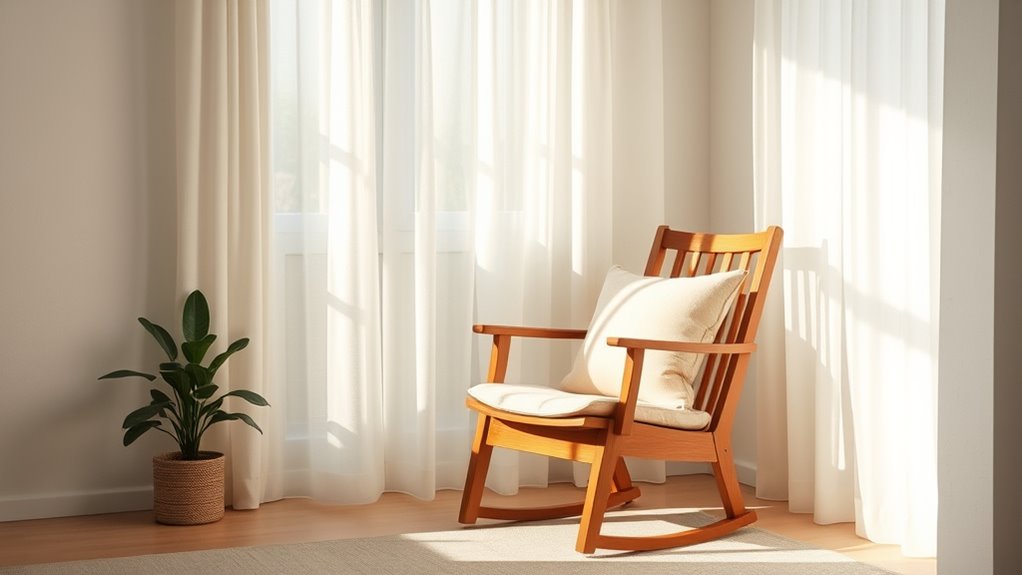Choosing to buy less and practice mindful consumption brings unexpected joy by reducing stress, clutter, and guilt. It helps you focus on what truly matters, aligning your actions with your values and creating a stronger connection to your well-being. Less shopping means more time, energy, and money for meaningful experiences and relationships. You’ll feel more centered and fulfilled, discovering the true happiness that comes from intentional living. Stay with us to explore how this simple shift can transform your life.
Key Takeaways
- Buying nothing reduces environmental impact and promotes a more sustainable, ethical lifestyle.
- Mindful consumption fosters gratitude, satisfaction, and a sense of fulfillment beyond material possessions.
- Less shopping declutters physical space and mental stress, enhancing overall well-being.
- Choosing to buy less redirects resources toward meaningful experiences and relationships.
- A deliberate approach to consumption aligns actions with personal values, creating a sense of freedom and clarity.

Have you ever stopped to contemplate how your everyday choices impact the planet and your well-being? It’s easy to get caught up in the rush of life and forget that each purchase you make sends ripples through the environment and your own health. Choosing to embrace mindful consumption can transform your relationship with material goods. When you focus on sustainable shopping and intentional buying, you’re making a statement—one that values quality over quantity, purpose over impulse. Instead of succumbing to consumerist pressures, you start to see shopping as a deliberate act of care for yourself and the world around you.
Choosing mindful consumption transforms your relationship with material goods and supports a healthier planet.
Sustainable shopping isn’t just a trend; it’s a way to reduce your ecological footprint. It involves seeking out products made ethically, from eco-friendly materials, and produced under fair labor conditions. When you make conscious choices, you support companies that prioritize sustainability and social responsibility. This shift from mindless consumption to mindful purchasing means you’re less likely to buy things on impulse or because of fleeting trends. Instead, you evaluate whether a product truly meets your needs and aligns with your values. Over time, this intentional buying cultivates a sense of fulfillment that material possessions rarely provide, because you’re investing in what truly matters.
The joy of buying nothing, or drastically reducing your consumption, stems from the clarity and freedom it brings. Without the clutter of unnecessary stuff, your space becomes calmer and more organized. Your mind also benefits—less distraction, less stress. When you resist the urge to constantly acquire, you gain a deeper understanding of what you genuinely need versus what’s marketed as essential. This deliberate approach helps you break free from the cycle of fleeting gratification and fosters gratitude for what you already have. You find satisfaction in simplicity, and that satisfaction is far more lasting than the temporary thrill of a new purchase.
Furthermore, avoiding unnecessary buying allows you to redirect your resources—time, energy, and money—toward experiences, relationships, or causes you care about. It’s about appreciating quality over quantity and valuing the process of mindful decision-making. Over time, this mindset enhances your overall well-being, making you feel more centered and fulfilled. The act of buying less doesn’t mean deprivation; it means making room for what truly enriches your life. In this way, mindful consumption becomes a source of joy and empowerment, reminding you that sometimes, the best choice is no choice at all. Additionally, practicing mindful consumption can foster a stronger connection to your values and help you develop a more intentional lifestyle related to personality traits.
Frequently Asked Questions
How Does Mindful Consumption Impact Mental Health?
Mindful consumption can profoundly boost your mental health by enhancing emotional resilience and reducing stress. When you focus on intentional buying, you avoid impulsive decisions that cause regret and anxiety. This practice encourages you to prioritize what truly matters, fostering a sense of control and satisfaction. As a result, you experience fewer stressors related to excess and clutter, leading to a calmer, more centered mindset and improved overall well-being.
Can Mindful Consumption Save Money Long-Term?
Did you know that mindful consumption can save you up to 30% on expenses? By adopting sustainable habits and thinking carefully before buying, you reduce unnecessary spending. This approach not only benefits your wallet but also promotes long-term financial savings. When you focus on quality over quantity, you avoid impulse purchases and waste, making your money go further. Ultimately, mindful consumption helps you build a more secure and sustainable financial future.
What Are Practical Tips for Beginners to Buy Less?
To start buying less, you should adopt minimalist habits that focus on quality over quantity. Create a budget-friendly strategy by setting clear limits on spending and avoiding impulse buys. Before making a purchase, ask yourself if you truly need it. Keep a list of essentials and practice delayed gratification. These small steps will help you reduce clutter, save money, and enjoy a more mindful, intentional lifestyle.
How Does Mindful Shopping Influence Community Well-Being?
Ever wonder how mindful shopping impacts your community? When you choose local, sustainable options, you strengthen community cohesion and support local economies. Your conscious choices encourage others to shop thoughtfully, creating a ripple effect that benefits everyone. By reducing waste and fostering connections, you help build a more resilient, connected neighborhood. Isn’t it rewarding to see your mindful purchases contribute to a healthier, happier community?
Are There Cultural Differences in Mindful Consumption Practices?
You’ll notice that cultural differences shape mindful consumption practices considerably. In some cultures, cultural shopping habits emphasize sustainability and community well-being, while others focus on individual needs. These diverse approaches influence global consumption trends, encouraging more mindful choices worldwide. By understanding these cultural nuances, you can adapt your shopping habits to align with local values, making your consumption more intentional and respectful of different traditions and environmental impacts.
Conclusion
By embracing mindful consumption, you’ll find that less truly is more. When you resist the urge to always buy and instead focus on what truly matters, you’ll discover a sense of peace and satisfaction that material possessions can’t provide. It’s a win-win situation—freeing your mind and your wallet. Remember, sometimes the best things in life are right in front of you, waiting to be appreciated. So go ahead, take the plunge and enjoy the simple pleasures that come with buying nothing.










